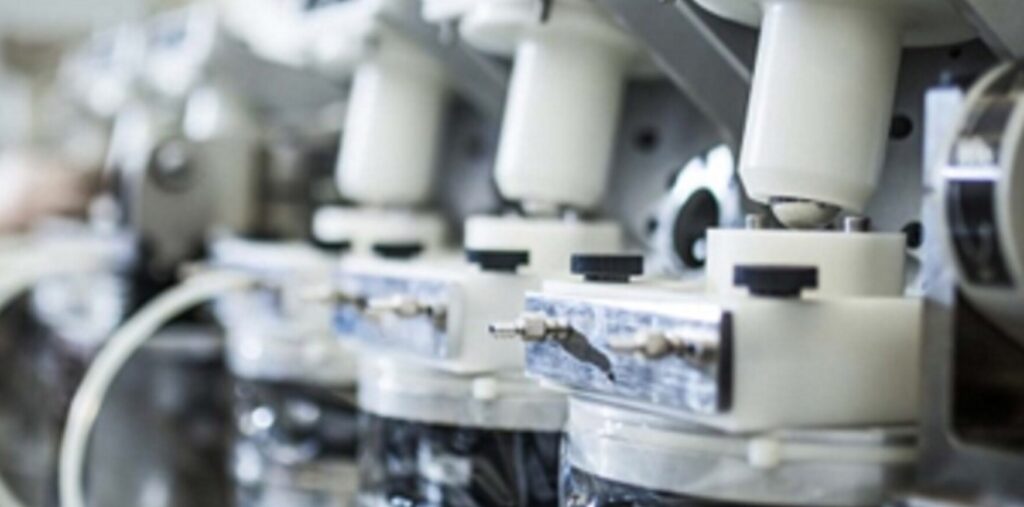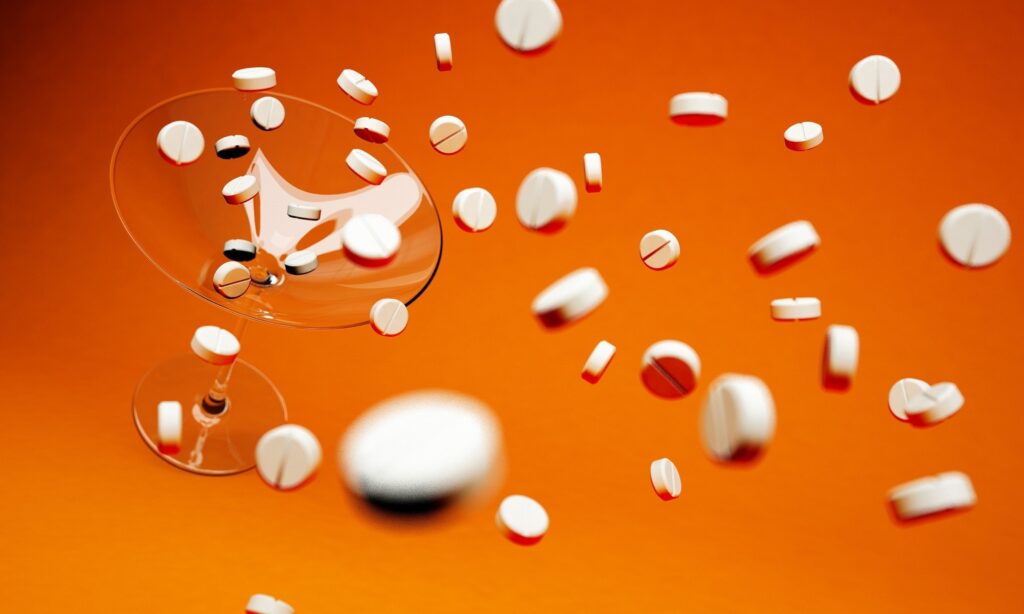Contents
Medicinal Products for Human Use
- Amendment to the Draft Regulation on the Promotional Activities of Medicinal Products for Human Use and Foods for Special Medical Purposes
- Regulation on the Market Surveillance of Medicinal Products for Human Use and Foods for Special Medical Purposes
- Announcement on the Suspension of Health Claims
- Amendment to the Regulation on the Licensing of Medicinal Products for Human Use
- Regulation on the Withdrawal of Human Medicinal Products and Foods for Special Medical Purposes
Medical Devices
- Amendment to the Guideline on the Implementation of the Regulation Regarding the Sale, Advertising and Promotion of Medical Devices
- Announcement Regarding Companies and Users Registering Medical Device Documents and Products
- Announcement Regarding the Amendment to the Regulation on Quality Compliance and Quality Control Tests for Diagnostic Radiology, Nuclear Medicine and Radiotherapy Group Medical Devices
- Amendment to the Communiqué on the Decree No. 32
Cosmetics
- Draft Regulation on Experimental Studies to be Conducted on Humans concerning Cosmetic Products
- Draft Regulation on the Amendment to the Cosmetic Products Regulation
Traditional Herbal Medicinal Products
- Amendment to the Regulation on Traditional Herbal Medicinal Products
Homeopathic Medicinal Products
- Regulation on the Amendment to the Regulation Regarding the Licensing of Homeopathic Medicinal Products
Medicinal Products for Human Use
Amendment to the Draft Regulation on the Promotional Activities of Medicinal Products for Human Use and Foods for Special Medical Purposes.
On 28 May 2024, Turkish Medicines and Medical Devices Agency (“Agency”) has shared the Draft Regulation on the Promotional Activities of Medicinal Products for Human Use and Foods for Special Medical Purposes with public for stakeholders’ feedback. In line with the feedback received from stakeholders, certain amendments were incorporated into the draft regulation, and the updated second version was resubmitted for stakeholders’ review on 25 September 2024.
In this context:
- The value transfer notification threshold, which was originally set 5% of the monthly gross minimum wage in the initial draft has been increased to 10% of the monthly gross minimum wage, in line with the current legislation.
- It has been clarified that all activities other than those explicitly defined as promotional activities shall be considered as advertisement, and it has been emphasized that advertisement of medicinal products for human use and foods for special medical purposes is prohibited.
- The ban on incentives and gratuities to HCPs included in the initial draft has been maintained.
- As in the initial draft, the following have been permitted: promotional activities addressed to dietitians limited with special medical purpose foods; electronic video calls by sales representatives; and promotion of products authorised by the Agency for import from abroad upon prescription due to their unavailability in the Turkish market, provided that such promotion is for pharmacovigilance purposes.
- Patient support programmes has been included within the scope of the draft regulation.
- The provisions regarding (i) the obligation for licence holders to register promotional materials prepared or updated for their products in the Agency’s electronic database before their use or distribution, and (ii) the initial registration requirement for scientific meetings is proposed to be effective as of 1 July 2025, while the other obligations will be effective as of 1 January 2025.
- In case of breach of the regulation, a progressive promotion ban system starting with a warning and gradually escalating to bans of one month, three months, six months and a year shall be imposed on license holders. Additionally, sanctions imposed on license holders other than warnings shall be announced on the Agency’s website.
Regulation on the Market Surveillance of Medicinal Products for Human Use and Foods for Special Medical Purposes.
The regulation, which entered into force upon publication in the Official Gazette on 21 November 2024 repealed the Regulation on the Market Surveillance of Medicinal Products for Human Use. As such, a “Market Surveillance Planning Board” will be established within the Agency to develop market surveillance programmes, and to conduct scientific and/or administrative evaluations based on certain risk parameters. Accordingly, the afore-mentioned board will identify the products and active substances to be monitored based on these risk parameters. As a result of the evaluation, a decision to block the supply or existence of products in the market through the Drug Tracking System may be taken.
Announcement on the Suspension of Health Claims.
According to the Agency’s announcement dated 30 September 2024, health claims related to probiotic microorganisms and prebiotic components have been reassessed under the Regulation on the Use of Health Declarations in Food and Food Supplements and the Guideline on the Use of Health Claims in Food and Food Supplements. As a result of this assessment, the phrase of health claim for probiotic microorganisms and the minimum daily intake amount required to support such a claim have been revised. On the other hand, the health claim for prebiotics has been suspended due to lack of sufficient supporting scientific evidence and absence of official dietary recommendations regarding “adequate intake” or “recommended daily amount” for healthy individuals. It has further been stated that until the decision becomes final, existing health claims may continue to appear on product labels that are already compliant with the regulation, including those already on the market or manufactured but not yet distributed, as well as products planned for production with these claims. However, such health claims may no longer be used for products not falling within these specified categories.
Amendment to the Regulation on the Licensing of Medicinal Products for Human Use.
With the regulation, which entered into force on 3 December 2024, the existing framework has been reviewed extensively, and various adjustments have been introduced to address new requirements. Some of the key amendments are as follows:
- The concept of “mandatory application” has been incorporated into the licensing process for medicinal products for human use. Accordingly, additional revisions requested by the applicant that require changes in the product file will only be accepted if deemed mandatory by the Agency.
- The amended regulation provides that transfer of marketing authorisations for medicinal products for human use, the licences of which have not been renewed will no longer be permitted. This prohibition, which holds critical importance for licence transfer processes is set to be effective as of 1 July 2026.
- Licence applications for co-marketed products shall be rejected, if the necessary licence registration renewal process of the original medicinal product for human use has not been accomplished. In this regard, it is worth noting that renewal applications must be submitted nine months prior the expiration of the five-year licence period.
- An exceptional provision has been introduced to allow the placing of a licensed medicinal product for human use in the market, in limited quantities and for a limited period of time. Limited with the exceptional circumstances, the Agency may act upon the licence holder’s request to address supply issues that could severely impact public health or specific segments of the population, for purposes of uninterrupted provision of healthcare services. In such cases, upon approval of the Priority Assessment Board, the Ministry of Health may allow licensed medicinal products for human use to be placed on the market in limited quantities for a limited period of time, provided that product safety is not jeopardized. This aims to address urgent healthcare needs and to offer a proactive solution to potential disruptions in the supply chain.
- The deadline for market release of allergenic products manufactured in and already placed within European Union member states has been extended from 31 December 2024 to 1 January 2026. Furthermore, a temporary clause has been introduced stipulating that the licensing processes for medicinal products for human use under review as of 1 March 2024 will not be finalised until required analyses have been completed and deemed satisfactory.
Regulation on the Withdrawal of Human Medicinal Products and Foods for Special Medical Purposes.
The Regulation on the Withdrawal of Medicinal Products for Human Use and Foods for Special Medical Purposes was published in the Official Gazette, and entered into force on 23 October 2024. With the afore-mentioned regulation coming into force, the Withdrawal Regulation published in the Official Gazette on 19 November 2015 was abolished. Unlike the previous regulation, the scope of the Regulation merely includes medicinal products for human use and active substances used in the production of medicinal products for human use as well as matters regarding the withdrawal activities, production, placing and keeping on the market of medicinal products for human use. The regulation introduces detailed provisions as per which the Agency shall evaluate faulty or suspicious products, request information from the marketing authorization holder where necessary, conclude on withdrawal, conduct relevant proceedings in the Drug Tracking System, ensure oversight of the processes, halt the production of faulty products and take the necessary measures to prevent incompliance, and conduct necessary checks before re-introducing products to the market. A “Withdrawal Evaluation Commission” has also been introduced together with a number of new practices. Ultimately, the aim is to adopt an effective and integrated system for the withdrawal of medicinal products for human use and foods for special medical purposes through putting in place comprehensive regulations and sanctions. Within the scope of the sanctions, upon withdrawal announcement, administrative fines ranging from TRY 48,113 to TRY 481,113, depending on the nature of the act may be imposed on the license/permit holders, manufacturers, pharmaceutical entities and pharmacies that continue to sell the defective batch, that do not implement the withdrawal decision and that act contrary to the provisions of the above-mentioned regulation as well as under the Product Safety and Technical Regulations, Law No. 7223, the Law on Pharmaceutical and Medical Preparations No. 1262, the Turkish Penal Code No. 5237 and the Misdemeanour Law No. 5326.

Medical Devices
Amendment to the Guideline on the Implementation of the Regulation Regarding the Sale, Advertising and Promotion of Medical Devices.
Under the amended version of the guideline published on 30 September 2024, certain provisions have been introduced in relation to the technical service activities and warranty certificates of medical devices.
In this context:
- Medical device sales centres must fulfil their obligations under the “Regulation on the Technical Service Provisions of Medical Devices Used in the Scope of Health Service Provision” for the technical service activities of the devices and their accessories that they manufacture or import.
- Medical device sales centres are required to upload a commitment to provide technical service for certain medical devices and their accessories used in healthcare provision services throughout the device’s lifecycle under the Product Tracking System. Non-compliance with this obligation will result in the cancellation of the relevant registry in the Product Tracking System.
- Regarding the provision of spare parts, sales centres must ensure that spare parts requested by authorised technical services or healthcare providers for devices that sales centres manufacture or import are delivered within (i) twenty business days for domestic procurement and (ii) thirty business days for international procurement. When calculating these periods, time passed for the requesting party’s approval (e.g., acceptance of the price quote, etc.) shall be excluded, and the period of time between the request date and the delivery date of the spare part shall be taken into consideration.
- Sales centres are required to provide, free of charge, any passwords or similar information necessary for the technical service activities of the devices they manufacture or import within 24 hours upon request of the healthcare service provider using the device.
- If a healthcare provider chooses to exercise the right to replace a device with an unused equivalent, the period of forty-five days for fulfilling this request may be extended up to 180 days if the replacement causes disproportionate difficulties for the sales centre as deemed appropriate by the Agency.
- It has been clarified that no additional warranty certificate is required for accessories covered by the device’s warranty certificate.
- Warranty certificates must include the service life determined by the manufacturer at the time the medical device is placed on the market.
- The warranty period will commence from the date of the invoice issued after the healthcare provider accepts the device. In cases where the invoice must be issued before the device’s acceptance due to commercial agreements or different financing models, the warranty period will begin from the acceptance date of the device, regardless of the invoice date.
Announcement Regarding Companies and Users Registering Medical Device Documents and Products. Through the announcement published on the Agency’s website on 7 October 2024, it has been stated that a software update will be implemented to limit the ability of individuals conducting medical device document and product registration processes under the Product Tracking System to operate on behalf of multiple companies. Accordingly, individuals performing document and product registration processes on behalf of companies classified as “Manufacturer/Importer/Distributor/Exporter” and “Custom Orthotics and Prosthetics Centres” under the Product Tracking System will be registered as users on behalf of a maximum of 10 companies. This aims to prevent potential issues around data security and accountability. Accordingly, individuals associated with more than 10 companies must complete the necessary steps to comply with the revised regulation by 1 January 2025. Following the update of the software, the system will no longer permit an individual to be registered as a user for more than 10 companies.
Announcement Regarding the Amendment to the Regulation on Quality Compliance and Quality Control Tests for Diagnostic Radiology, Nuclear Medicine and Radiotherapy Group Medical Devices.
With the announcement published on the Agency’s website on 25 October 2024, a significant change regarding the quality compliance and quality control test requirements under the Regulation on Quality Compliance and Quality Control Tests for Diagnostic Radiology, Nuclear Medicine and Radiotherapy Group Medical Devices has been introduced. Accordingly, the obligation to have the quality compliance and quality control processes for diagnostic nuclear medicine and radiology group medical devices performed by individuals or organisations authorised by the Agency has been suspended until further notice.
Amendment to the Communiqué on the Decree No. 32.
The Communiqué Numbered 2024-32/70 Amending the Communiqué on the Decree No. 32 Regarding the Protection of the Value of Turkish Currency was published in the Official Gazette, and entered into force on 8 October 2024. Accordingly, Turkish-resident notified bodies appointed in accordance with the Medical Device Regulation and the In Vitro Diagnostic Medical Device Regulation can now enter into service agreements with manufacturers and employment agreements with persons residing in Türkiye in foreign currency or as indexed to foreign currency denominations within the scope of the said regulations.

Cosmetics
Draft Regulation on Experimental Studies to be Conducted on Humans concerning Cosmetic Products.
On 25 October 2024, the draft Regulation on Experimental Studies to be Conducted on Humans concerning Cosmetic Products, which establishes the procedures and principles for conducting efficacy and compatibility studies, scientific research, and consumer perception tests involving volunteers has been shared with public for stakeholders’ feedback.
The draft regulation encompasses: (i) efficacy studies aimed at investigating the effectiveness claims of cosmetic products; (ii) compatibility studies designed to evaluate their interaction with tissues such as skin and mucous membranes; (iii) scientific studies involving volunteers conducted as part of university thesis research; and (iv) consumer perception tests to assess the effects of marketed products on consumers. The draft regulation aims to protect volunteers by introducing ethical principles and scientific standards for individuals and organisations conducting such studies. Key provisions envisaged by the draft regulation can be summarised as follows:
- Obtaining written consent from volunteers or their legal representatives is mandatory for participation in the experimental studies to be conducted. Additionally, the experimental studies must be approved by Cosmetic Product Ethics Committees. If any of the conditions required for a study cease to exist during its course, the study shall be immediately terminated.
- General principles for cosmetic product studies are outlined in the draft regulation, emphasising that the anticipated benefits of the study must not outweigh the volunteer’s health or other personal rights. Methods that cause undue pain and that are inconsistent with human dignity are prohibited, and volunteers must have the right to request information about the study at any time and to withdraw from the study at their discretion at any time, with or without justification, without being subjected to any sanctions or loss.
- Cosmetic products used in the studies must be stored, distributed, and delivered to the study centre under appropriate conditions after production or importation, while any unused or withdrawn products must be collected from the study centre and either returned or properly disposed of, and the responsibility for maintaining all records throughout these processes shall rest with: (i) the person, institution, or organisation initiating, conducting, or financing the studies; or (ii) the contracted research organisation or principal investigator assigned by such entities.
- If an adverse effect occurs during cosmetic product studies, the principal investigator or an investigator designated by the principal investigator must report these effects to the sponsor or the contracted research organisation appointed by the sponsor. The sponsor or the contracted research organisation shall keep records of all adverse effects and notify the Agency and the Ethics Committee.
Draft Regulation on the Amendment to the Cosmetic Products Regulation.
The draft regulation has been published on 9 October 2024, and aims to align the provisions of the Cosmetic Products Regulation with the updated annexes of (EC) Regulation No: 1223/2009 on Cosmetics Products.
In this context:
- The procedures and principles regarding labelling envisage that information may be provided not only on a brochure, label, paper strip, leaflet, or card but also within a “digital label/QR code,” enabling the inclusion of digital label information on small packages as well.
- It has been indicated that the concentrations of environmentally harmful components known as “D5” and “D6” must not be equal to or exceed 0.1% in (i) rinse-off cosmetic products as of 1 December 2026, and (ii) cosmetic products marketed in accordance with the definition as of 6 June 2027. This introduces a transition period to prevent the uncontrolled circulation of these commonly used harmful components in cosmetic products.
- Notification processes for cosmetic products conducted through the National Electronic Database will become subject to fees.

Traditional Herbal Medicinal Products
Amendment to the Regulation on Traditional Herbal Medicinal Products.
The regulation amendment published on 3 December 2024 introduces several significant changes, including the following:
- Previously, licences for traditional herbal medicinal products had no time restrictions; however, with the regulatory amendment, the validity period has now been set at five years from the initial date of issuance. Nine months prior to the expiration of the five-year period, a file containing detailed information about the product’s developments during this time frame must be submitted to the Agency. This file must specifically include all current information on efficacy, safety, and quality, including the evaluation of suspected adverse reaction reports and periodic benefit/risk assessment reports, as well as details of all variations made since the product was licensed. If such data cannot be provided due to the traditional herbal medicinal product not being placed on the market, the renewal evaluation application shall be submitted with the available pharmacovigilance data. The Agency will decide on the renewal evaluation application by considering the benefit/risk balance. Once a licence is renewed, it will remain valid indefinitely unless the Agency concludes that an additional five-year renewal evaluation is needed due to pharmacovigilance-related concerns.
- The amendment provides further details on the procedural rejection of traditional herbal medicinal products licence applications. Apart from the preliminary review, applicants must, within 30 days, submit to the Agency an explanation regarding their inability to provide requested documents, which must meet current scientific standards and relate to a period not exceeding the past three years. Failure to submit the required documents within the specified time frame will result in the procedural rejection of the application. Similarly, if a licence application for a traditional herbal medicinal product is procedurally rejected due to failure to submit the required explanation within 30 days, a re-application may be submitted provided that: (i) any priority decisions previously granted by the Priority Assessment Board for licensing and/or inspection processes, if applicable, will remain valid, and the licensing process for the product will be initiated directly; and (ii) the re-submitted application shall include a declaration confirming that the updates approved or requested by the Agency have been incorporated into the updated file. However, if the Agency determines that the approved or requested updates have not been incorporated into the file despite the submitted declaration, the application will be rejected again, and any prior priority decisions granted by the Priority Assessment Board for the licensing or inspection processes of the product will be annulled.
- In line with the amendments introduced in the Regulation on the Medicinal Products for Human Use, the amendment stipulates that, for traditional herbal medicinal products with no completed licence renewal processes, licence transfer transactions will no longer be permitted as of 1 July 2026.
- Similar to the Amendment to the Regulation on the Licensing of Medicinal Products for Human Use, in cases where supply issues that significantly affect the general public or specific groups arise, the Agency, upon the licence holder’s request, may permit the limited supply of a licensed traditional herbal medicinal product for a specific period, provided that product safety is ensured, the Priority Assessment Board deems it appropriate, and the Ministry of Health determines it necessary to maintain the continuity of healthcare services.
Homeopathic Medicinal Products
Regulation on the Amendment to the Regulation Regarding the Licensing of Homeopathic Medicinal Products.
The amendment dated 3 December 2024 has introduced several provisions regarding the licensing of homeopathic products. Among other changes, similar to the amendments brought by the Regulation on the Licensing of Medicinal Products for Human Use and the Regulation on the Licensing of Traditional Medicinal Products, in cases where supply issues significantly affecting the general public or specific groups arise, the Agency, upon the licence holder’s request, may permit the limited supply of a licensed homeopathic medicinal product for a specific period, provided that product safety is ensured, the Priority Assessment Board deems it appropriate, and the Ministry of Health determines it necessary to maintain the continuity of healthcare services. In parallel with these amendments, it has also been clarified that in order for the licence transfer process to proceed, a licence renewal application must have been submitted within the required time frame. Furthermore, the regulation provides details on the documents and data that must be submitted to the Agency within the scope of licence transfer processes for homeopathic products.
Share
Related persons
You can contact us for detailed information.




Legal Information
This briefing is for information purposes; it is not legal advice. If you have questions, please call us. All rights reserved.
You May Be Interested In
28 March 2025
Circular on the Prevention of Mobbing in Workplaces Has Been Published
On 6 March 2025, Presidential Circular No. 2025/3 on the Prevention of Mobbing at Workplaces (“Circular”) was published in the Official…
26 March 2025
Turkish Cybersecurity Law enters into force
The long-anticipated Cybersecurity Law No. 7545 came into force in Türkiye following its publication in the Official Gazette on 19 March…
24 March 2025
Recent Developments in Healthcare Legislation – Winter Issue 2025
Amendment to the Regulation on the Licensing of Medicinal Products for Human Use. An amendment to the Regulation on the Licensing of…
21 March 2025
Secondary Regulation on Crypto Assets Comes into Force!
Following the provisions introduced to the Capital Markets Law No. 6362 (“CML”) on crypto assets and crypto asset service providers…
11 March 2025
Turkish Data Protection Authority issues new guidelines for the processing of sensitive data
On 26 February 2025, the Turkish Data Protection Authority (“DPA”) published Guidelines on the Processing of Special Categories of Personal…
6 March 2025
Enforcement of Foreign Court Judgments in Türkiye: The Impact of Service Method
The enforcement of foreign court judgments in Türkiye is subject to the conditions set forth in Act No. 5718 on International Private and…
